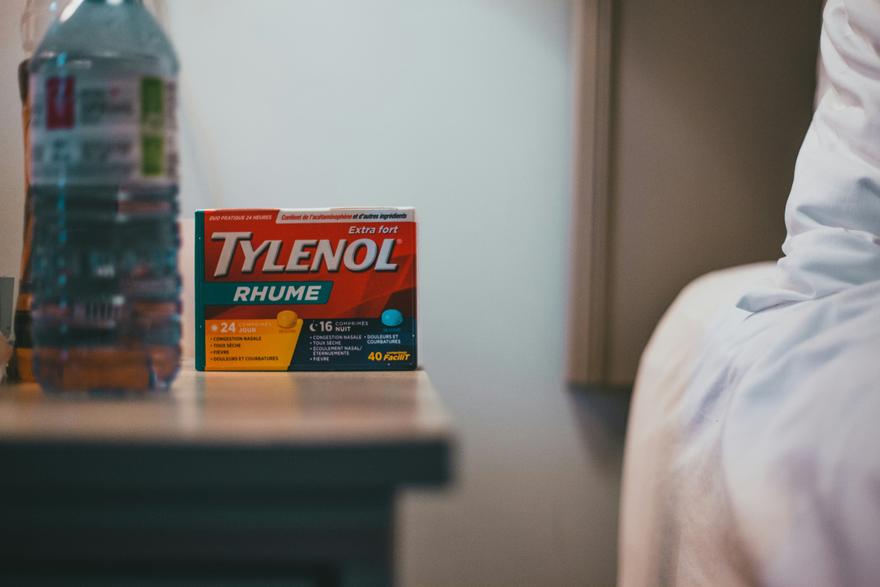
When a new health headline drops, it can feel overwhelming especially if you’re pregnant and already carrying so much responsibility.
This week, the FDA suggested clinicians advise women not to use Tylenol (acetaminophen) during pregnancy after reviewing studies that show associations with autism, ADHD, and other neurodevelopmental disorders. Read it here:
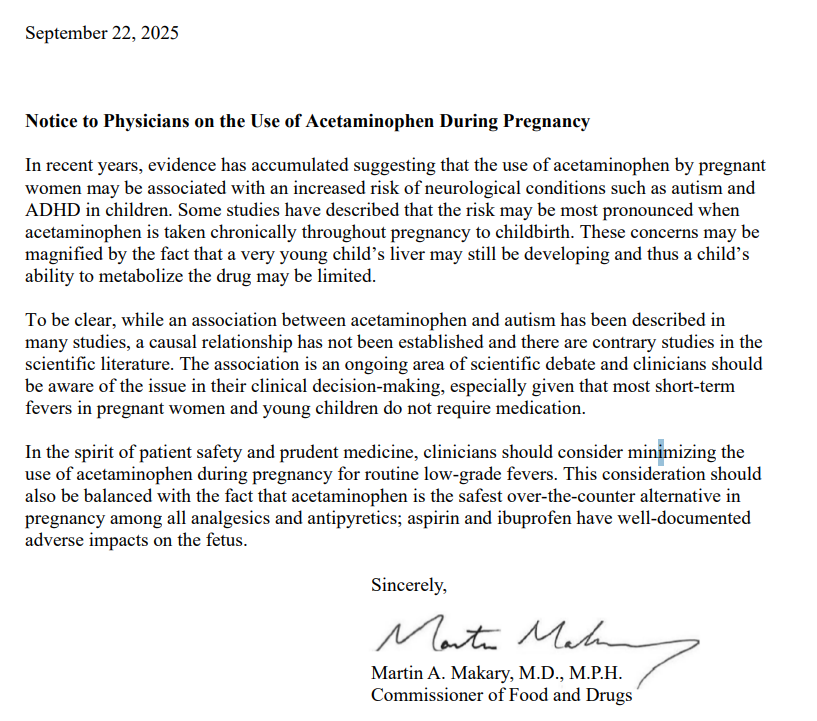
So what does this actually mean? Let’s unpack it.
(This is a podcast episode, too, if you would prefer to listen in!)
What the research found
A recent systematic review (a review looks at other studies, but doesn't do any scientific experiments themselves) looked at 46 studies on prenatal acetaminophen exposure.
-
27 studies found a positive association with autism, ADHD, or other developmental outcomes.
-
9 found no association.
-
4 even suggested protective effects.
In other words, overall, the weight of the evidence leans toward a potential risk necessitating action.
What about “statistical significance”?
Ideally, studies aim for p < 0.05 - a conventional cut-off for significance. In these acetaminophen studies, some estimates are closer to 1.0, meaning the association isn’t as strong as we’d like. Part of this is due to small sample sizes and the challenge of studying exposures during pregnancy.
But, we don’t need perfect statistics to start using common sense. If something may harm our children, even a small possible risk is worth paying attention to.
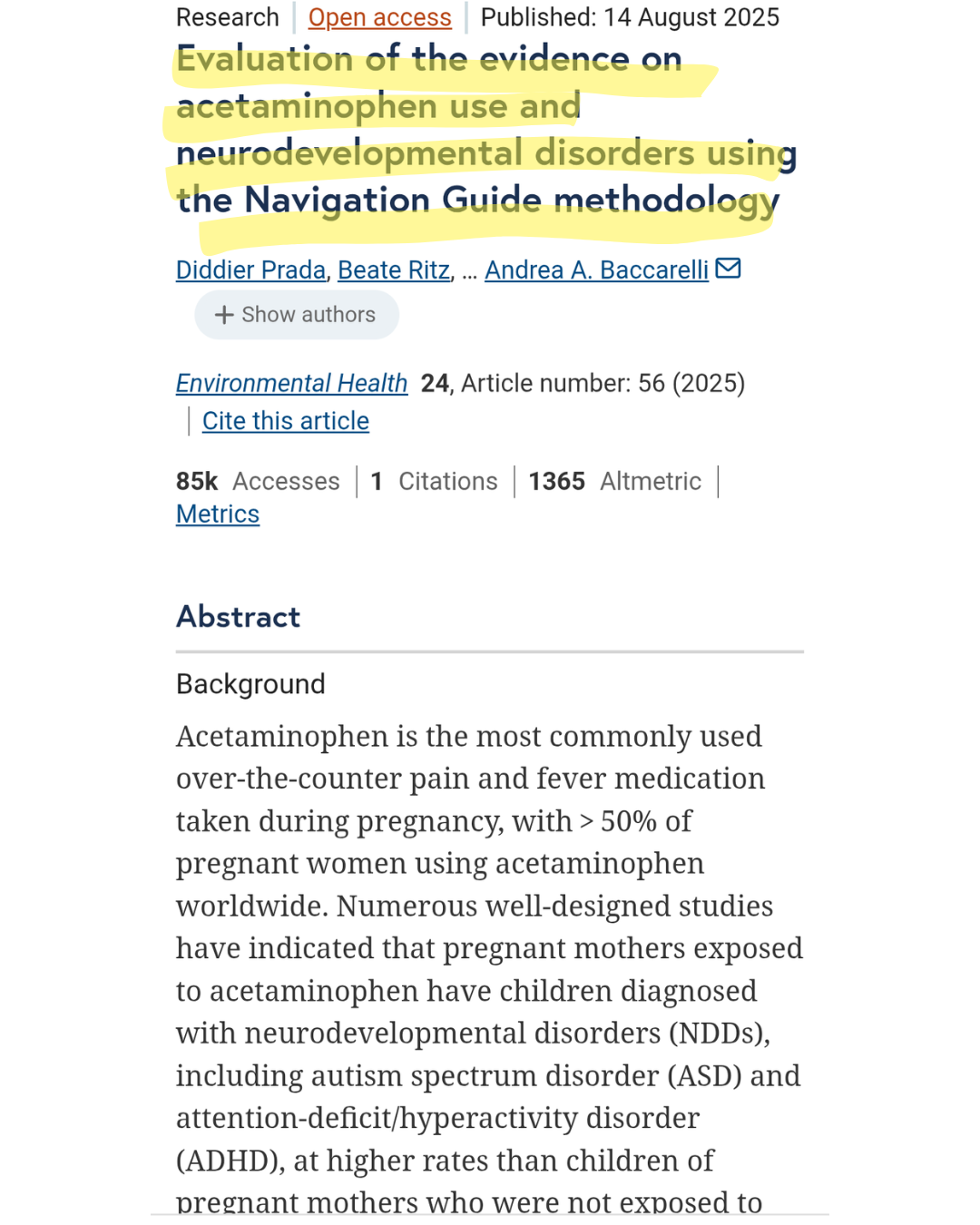

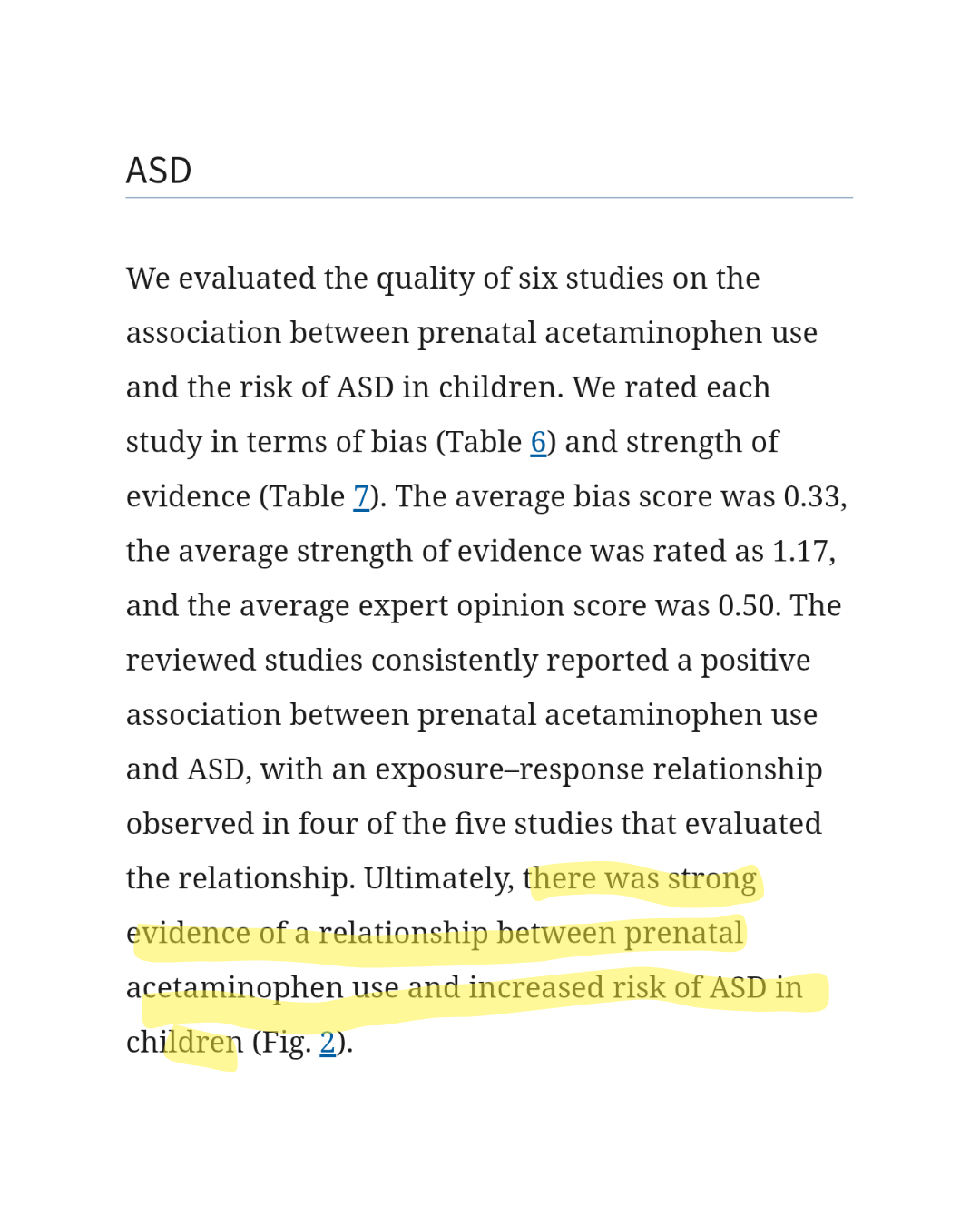
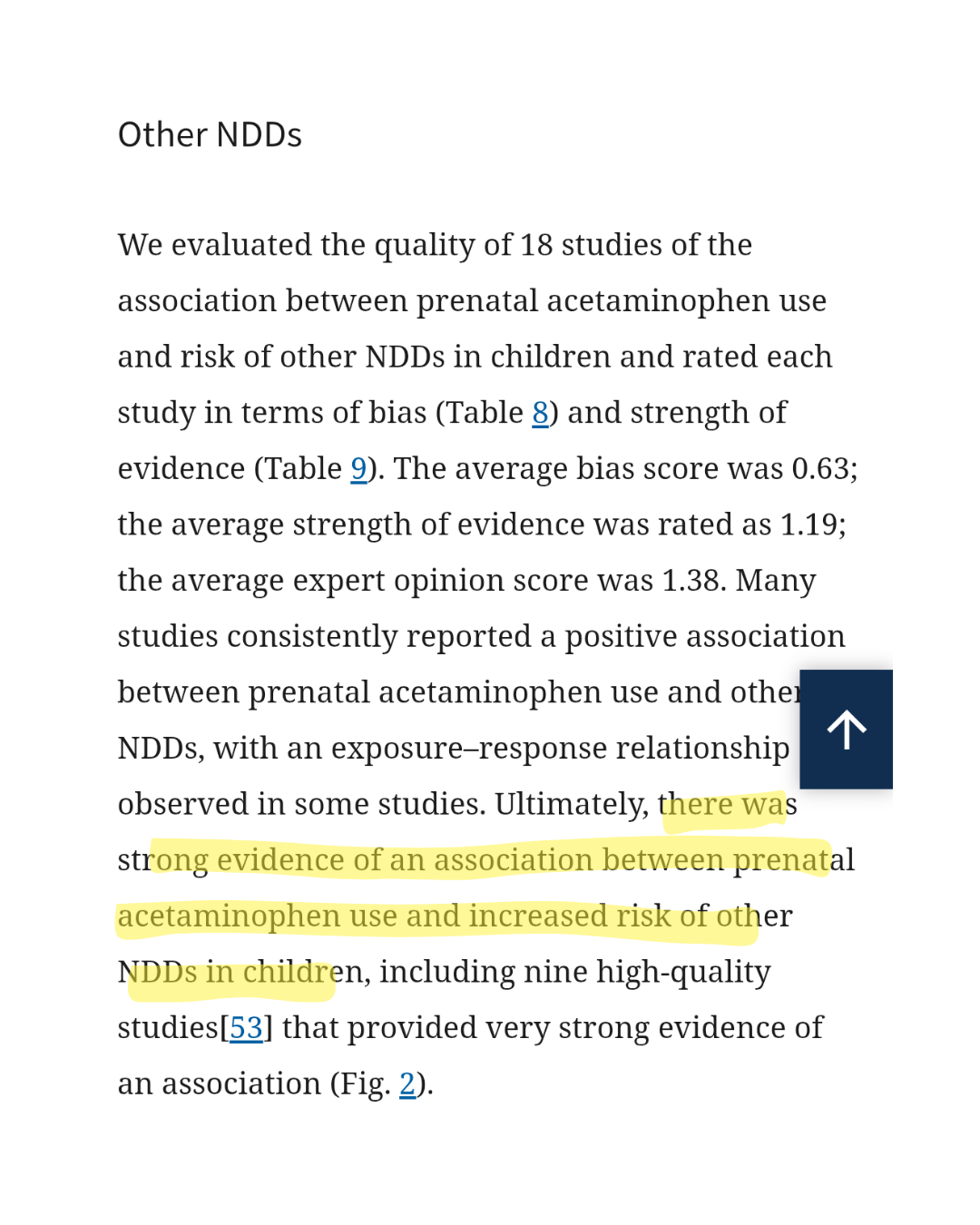
So what can you do instead?
If you’re pregnant and in pain, don’t panic, but do pause. Instead of reaching for Tylenol right away, ask:
-
Am I hydrated? Sometimes headaches are from simple dehydration.
-
Have I rested? Sleep can shift how we experience pain or can lead to headaches, weight gain, etc. Sleep is restorative!
-
Am I nourished? Vegetables, fruits, protein, and healthy fats support your body’s natural repair systems.
-
Am I moving? Gentle movement relieves muscle tension and boosts circulation.
-
Am I managing stress? Prayer, laughter, and deep breathing are powerful tools for pain management.
Your body’s signals are an invitation to support yourself differently, not just to silence symptoms. The FDA’s new stance on Tylenol is a wake-up call: it’s time to care for ourselves in more holistic ways.
Need practical help? Here is the simple way that I get (& my kids) 2 cups of fruit + 3 cups of veggies per day even when life is busy. Check this out!

Comments